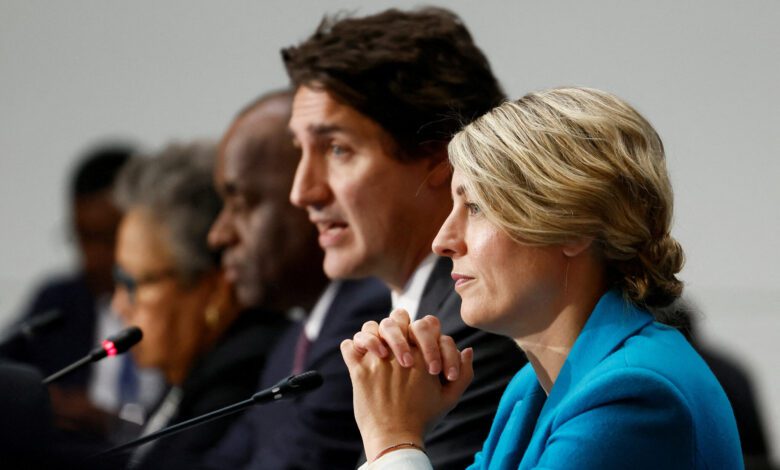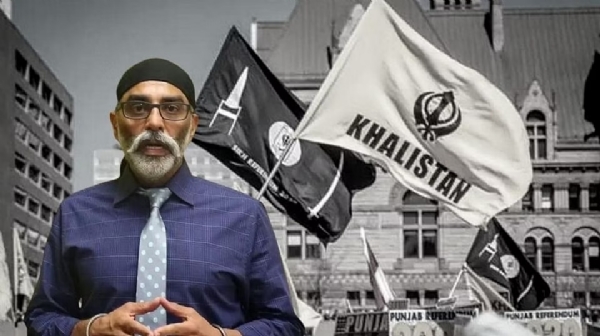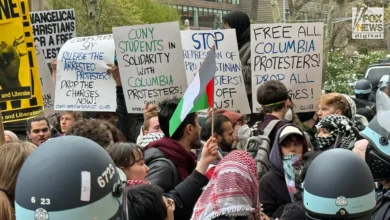Canada expels 41 diplomats in response to India’s threat to withdraw immunity
The original termination date for the number of Canadian diplomats stationed in India was October 10.

A day before the deadline set by New Delhi for their removal, failing which they risked losing diplomatic immunity, the Canadian government confirmed on Thursday that 41 of its diplomats in India have departed. Even though the development was classified as the “expulsion” of the Canadian ambassadors, Canada’s Minister of Foreign Affairs Mélanie Joly stated Ottawa has “decided not to reciprocate.” As a result, Ottawa is unlikely to escalate the diplomatic dispute. The diplomatic drawdown followed India’s attempt to achieve “parity” in the size of Canada’s diplomatic representation by reducing the number of ambassadors stationed there from 62 to 21.
Ottawa is unlikely to escalate the diplomatic dispute
Joly stated, “I can confirm that India has formally conveyed its plan to unilaterally remove diplomatic immunity for all but 21 Canadian diplomats and dependents in Delhi by tomorrow, October 20,” during a press conference on Thursday in Ottawa.
She continued, “Given the implications of India’s actions on the safety of our diplomats, we have facilitated their safe departure from India.”
“This means that our diplomats and their families have now left and are on their way home,” she added.
In a statement from the nation’s foreign ministry, Global Affairs Canada, Joly said that “India accredited each and every one of the Canadian diplomats they are now removing. And all of those diplomats were carrying out their duties in good faith, and to the greater benefit of both countries.”
“India’s move was unusual”
The original termination date for the number of Canadian diplomats stationed in India was October 10. However, Canada let that deadline to pass while holding secret talks with India. Those discussions, though, seem to have fallen short.
But she continued by saying that Canada would “continue to engage” with India because “now more than ever, we need to have diplomats on the ground and we need to talk to one another.” Joly declared, “Canada will continue to defend international law, which applies equally to all states. Canada will continue to engage India and remains committed to dialogue as we move forward.”
She added that India’s move was unusual. “A unilateral revocation of diplomatic privileges and immunities is contrary to international law. It is a clear violation of the Vienna Convention on Diplomatic Relations,” she claimed. Threatening to remove this immunity, she continued, was “unreasonable and escalatory” since it permits diplomats to carry out their duties “without fear of retaliation or arrest from the country they are in.” Marc Miller, the minister of immigration, refugees, and citizenship, joined Joly at the press conference. At its consulates in Chandigarh, Bengaluru, and Mumbai, Canada will have to “pause” in-person services “until further notice.” “The lower staff numbers will have short-term, and I think medium-term as well, repercussions,” Miller said.

Five IRCC employees will continue to work in India, where they will be responsible for tasks like urgent processing, printing visas, risk assessment, and managing important partners like visa application centres, panel doctors, and clinics that conduct immigration medical examinations. The remaining tasks and employees will be distributed among its worldwide processing network.
“India’s decision will not distract from Canada’s legitimate investigation into the killing of Mr. Nijjar. Canada’s priorities in this matter continue to be the pursuit of the truth, the protection of Canadians, and the defence of our sovereignty.”
The application procedures for international students and permanent residents from India, who make up the largest presence in Canada, may suffer. India had already made the decision to stop issuing visas to citizens of Canada in September.
This mass expulsion will harm our operations and client service, according to a statement from Global Affairs Canada.
The statement went on to explain, “India’s decision will impact levels of services to citizens of both countries. Immigration, Refugees and Citizenship Canada (IRCC) will continue to accept and process applications from India. However, certain application requirements will need to be completed locally or on-site in a secure environment. As a result, the reduction in the size of the IRCC team will affect service standards for residents of India,” said Joly.
This is the most recent instance of how the relationship between the two nations has deteriorated since Canadian Prime Minister Justin Trudeau said on September 18 in the House of Commons that there were “credible allegations” linking Indian agents to the June 18 murder of Khalistani leader Hardeep Singh Nijjar.
Within hours of Trudeau’s remarks, both nations had each removed a diplomat.
You might also be intersted in – Woes of Indian students in Canada: Unfair wages, sky-high rents, and scanty jobs



